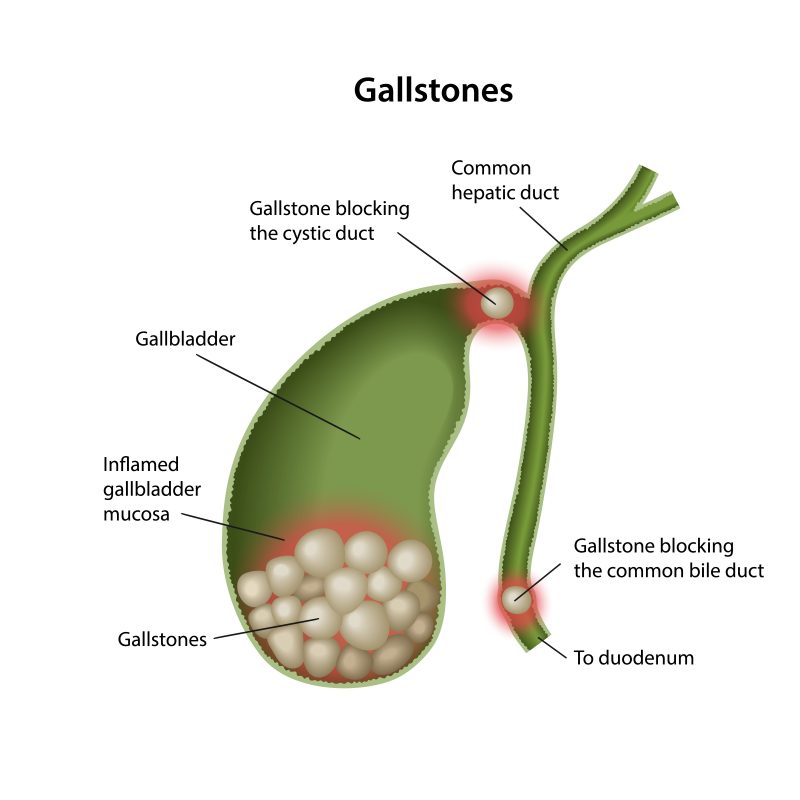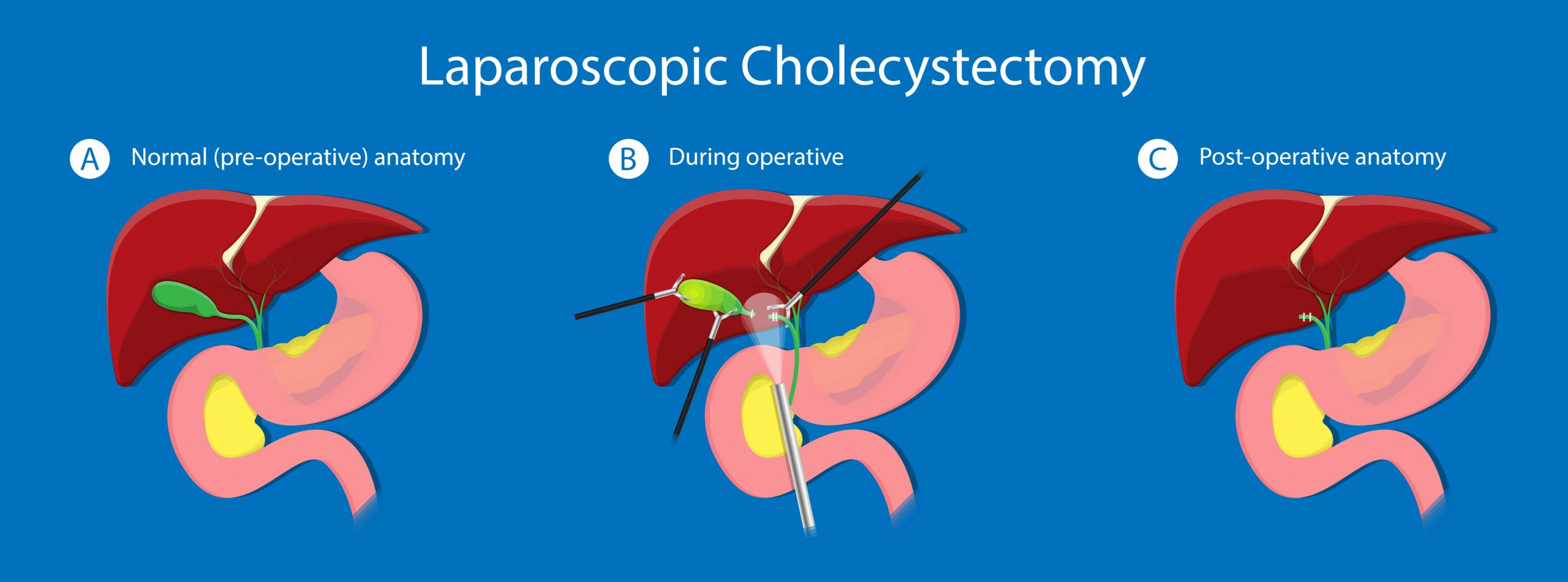Gallstones and associated disease.
Summary:
- Gallstones are very common,
- Not all gallstones cause problems; best left alone in that situation,
- Can cause a range of problems including upper abdominal pain, pancreatitis a severe type of infection called cholangitis,
- When they start causing problems it is time to consider removal of the gallbladder,
- Usually the gallbladder can be removed through keyhole, and
- No dietary modifications are necessary after surgery.

Gallstones are very common and one of the most common reasons for why patients come along to see a surgeon. They are formed from cholesterol or bile pigment and a result of an imbalance in the parts of bile. There are many reasons for this including rapid weight loss, some medications and having a high cholesterol. There is some familial (genetic) association.
Common symptoms.
- Most often in the upper abdomen, just below the breast bone. It typically last for a few hours but can be quite severe and often starts to spread to the back or across the right side,
- Bloating, indigestion and general discomfort, and
- Jaundice: Yellow discolouration of the skin and eyes caused by the accumulation of some chemicals usually filtered out through the bile. This can happen when a gallstone has dropped into the drainage tube causing some blockage. NB; this is not the only cause of jaundice.
These can sometimes be associated with nausea, fevers or feeling generally unwell.
IF YOU ARE EXPERIENCING SEVERE PAIN, FEVERS AND OR JAUNDICE IT IS RECOMMENDED THAT YOU SEEK URGENT MEDICAL ATTENTION.

Diagnosis:
Gallstones are most commonly detected by ultrasound. Sometimes this is an incidental finding when the scan has been done for another reason. Often in this type of situation we will recommend to leave the gallstones alone. This is all to do with a balance of risk from the operation to treat gallstones compared with the likelihood of further problems happening in the near future.Occasionally further tests need to be done. This might be a type of MRI or a study of the gallbladder function called a HIDA scan.
Treatment.
There are many non-surgical treatments advertised, especially on the internet. This includes Apple Cider Vinegar and Olive oil. Unfortunately there is inadequate evidence supporting their effectiveness and so we do not recommend their use. There is also a medicine sometimes prescribed when a patient is not fit for surgery (Ursodeoxycholic acid) but the effect on resolution of gallstones is too slow to be recommended.In most cases, when someone’s risk from an anaesthetic is acceptable, we will recommend an operation. We remove the gallbladder, stones and all. This is through a keyhole approach in 90% of cases, though there are some reasons why the approach needs to be changed to the traditional open cut. That is most often to complete the operation in the safest way to avoid complications.
During the procedure, we usually pass some die down the drainage tube and take an xray to see if any stones have dropped down. If they have, sometimes we can get them out during this operation but other times we need to organise a second procedure.
In most cases, the operation is around one hour. People usually stay in hospital for one night and return to most of their normal duties after about one week. No heavy lifting is recommended for four weeks.

Effect of removing the gallbladder:
Some people experience some indigestion and loose stools after this operation, particularly when eating a fatty meal. This usually settles down after a few months when the bile duct adapts to becoming a reservoir for bile and the bowels become used to the constant flow of bile. If it continues after six months, we would like to know about it as there are a few things we need to look at.
There is no good reason for why we need to recommend a modification in diet. Don’t listen to Mrs Jones over the back fence telling you that you will never be able to eat a meat pie again. You will still be able to visit Pinjarra Bakery!

Southern Surgical Care is run by expert surgeons experienced in the management of gallstones. We can provide advice at your pace and recommend proven treatments. A consultation is not an obligation and even those not considering surgery can come along to find out more of what can be done.
What to do if things aren’t right afterwards
Whilst cholecystectomy (removal of gallbladder) is a routine operation done very commonly, there are a few things that can happen occasionally when we don’t expect it. Above all else, if things aren’t right then let us know. Do not suffer in silence. Your well-being is our priority!


